Killing, The (1956)
“You like money — you’ve got a great big dollar sign there where most women have a heart.”
|
Synopsis: |
|
Genres, Themes, Actors, and Directors:
Response to Peary’s Review: As The Killing begins, a solemn voiceover (Art Gilmore) informs us:
This voiceover — a dated relic which mostly feels unnecessary — continues periodically throughout the movie, filling us in on the specifics of each character’s actions, and how they all relate to the grand heist. Indeed, while Sterling Hayden (nominated by Peary as one of the best actors of the year in his Alternate Oscars book) is ostensibly the film’s protagonist: … screentime is actually distributed amongst the motley crew of heist participants, and our allegiance and attention shift as needed to the other players in the film. For a while, for instance, Elisha Cook, Jr.’s troubled relationship with his “manipulative, unfaithful, double-crossing wife” (played to B-level perfection by Marie Windsor) dominates the story, as his foolhardy desire to save his sham of a marriage propels the entire operation towards its inevitable doom. During these scenes, Windsor is given some of the best hardboiled dialogue in the film (courtesy of Jim Thompson):
Soon we’re caught up in the mechanics of the heist itself, watching as each player fulfills his well-timed part, and “the pieces of a great puzzle fall into place”. Tension builds incrementally, as we wonder when the inevitable slip-up will occur; the interactions between a hick hired gun (Timothy Carey, reminiscent of John Turturro) and the black racetrack employee (James Edwards) he sweet-talks into letting him into a parking lot ahead of time are particularly riveting and disturbing. By the end of the film, the story has cycled back to Hayden, and we watch with bated breath to see what fate holds for him and his “nice girlfriend” (an underused Colleen Gray). All I’ll say is: watch the woman with the dog. Note: Peary accurately points out that the film “recalls Jean-Pierre Melville’s Bob Le Flambeur” — another must-see classic. Redeeming Qualities and Moments: Must See? Categories
Links: |
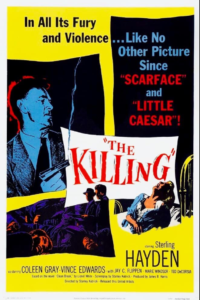
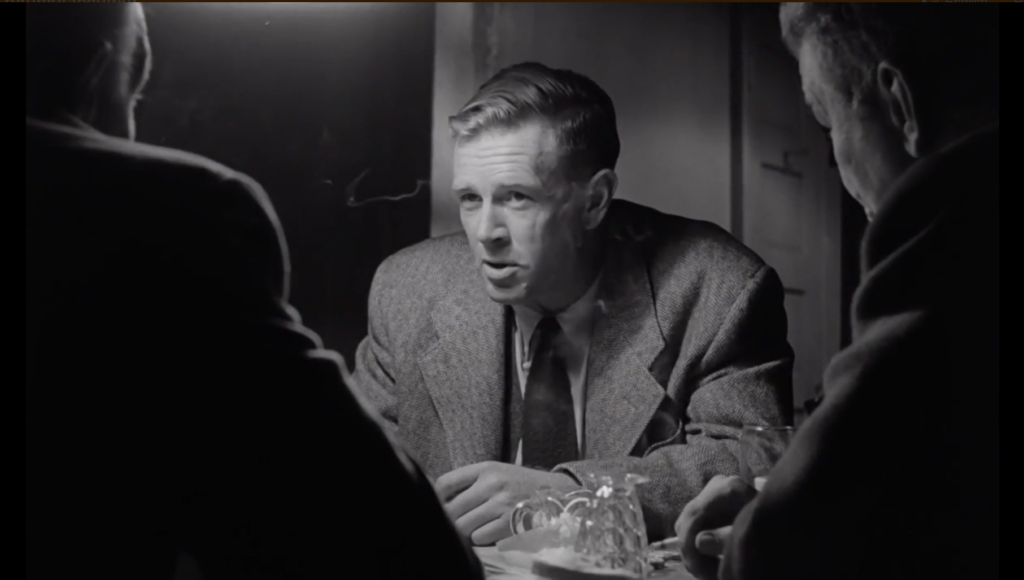
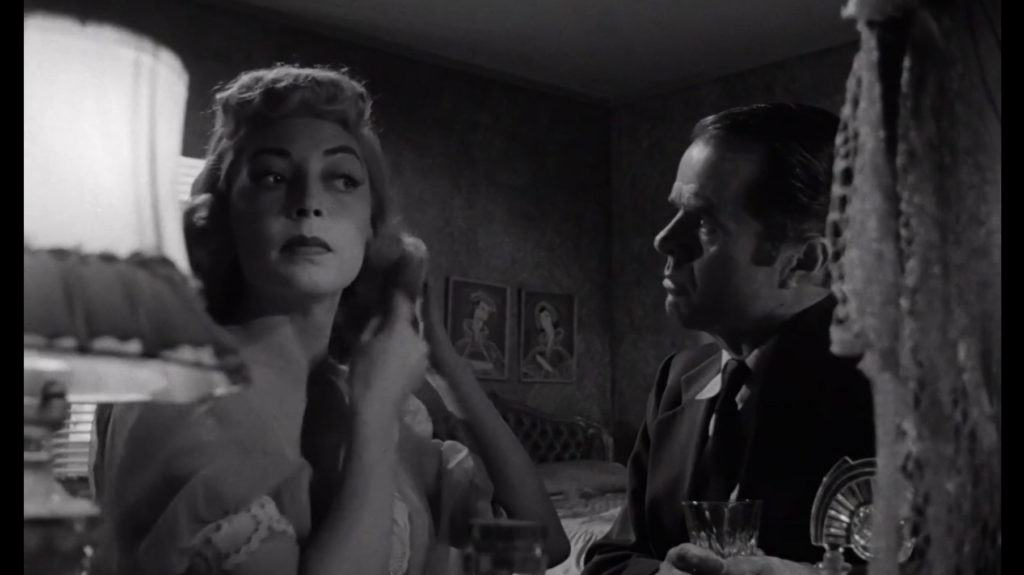
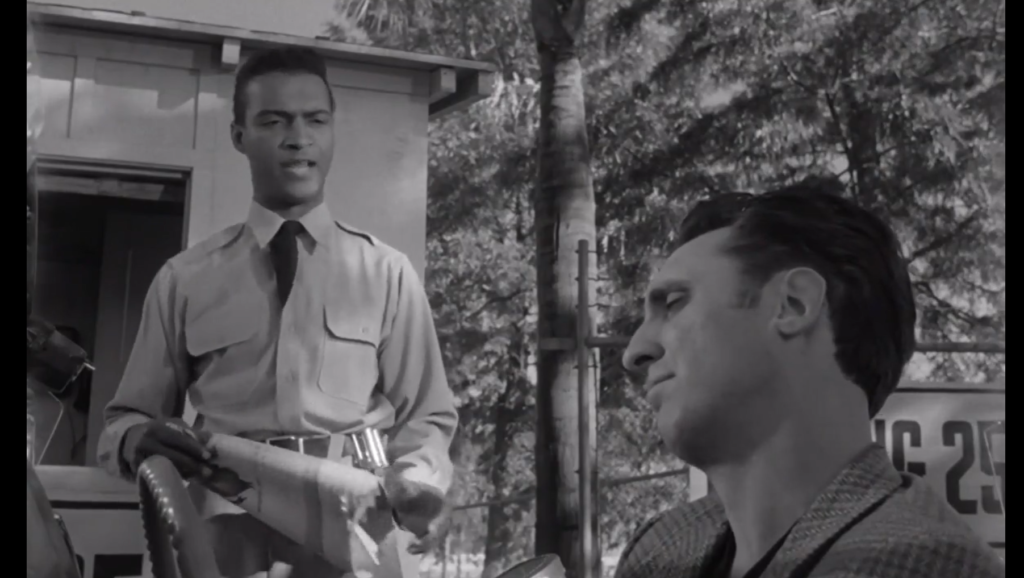
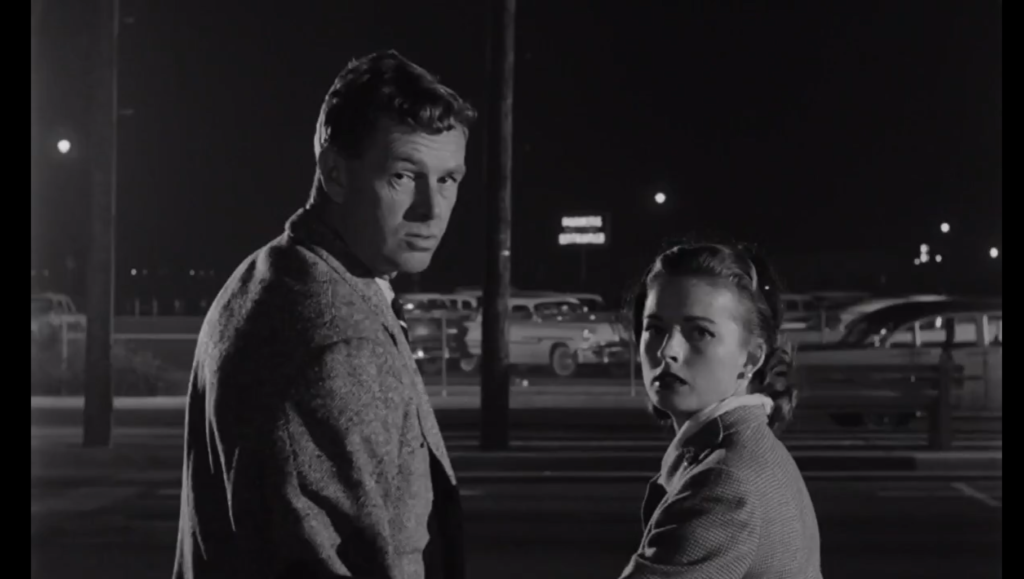
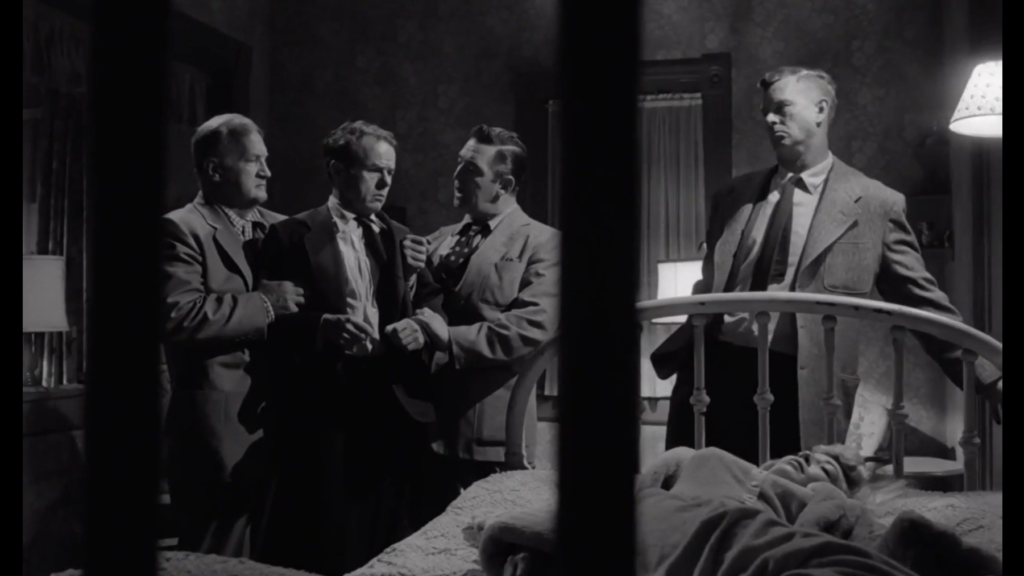
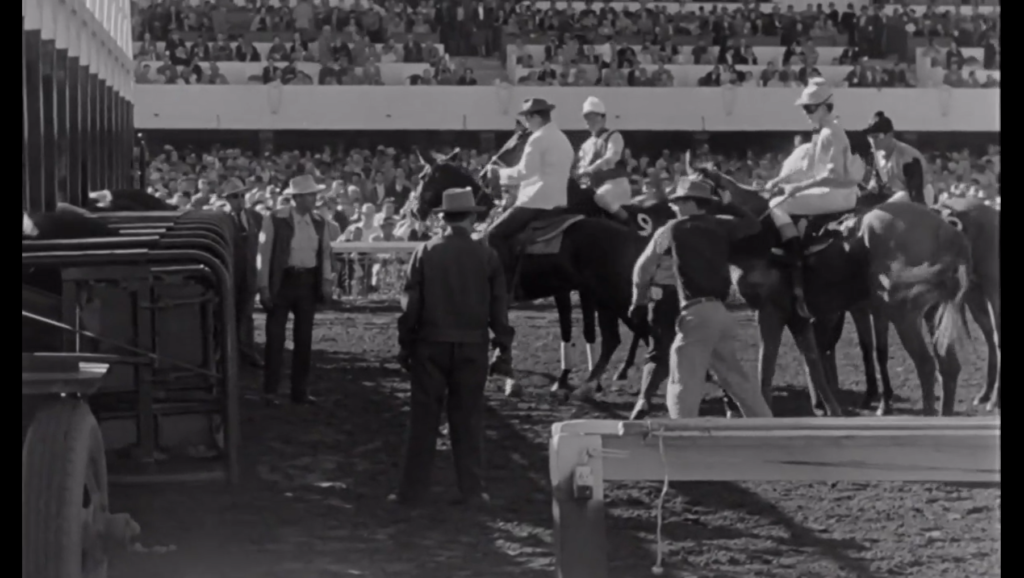
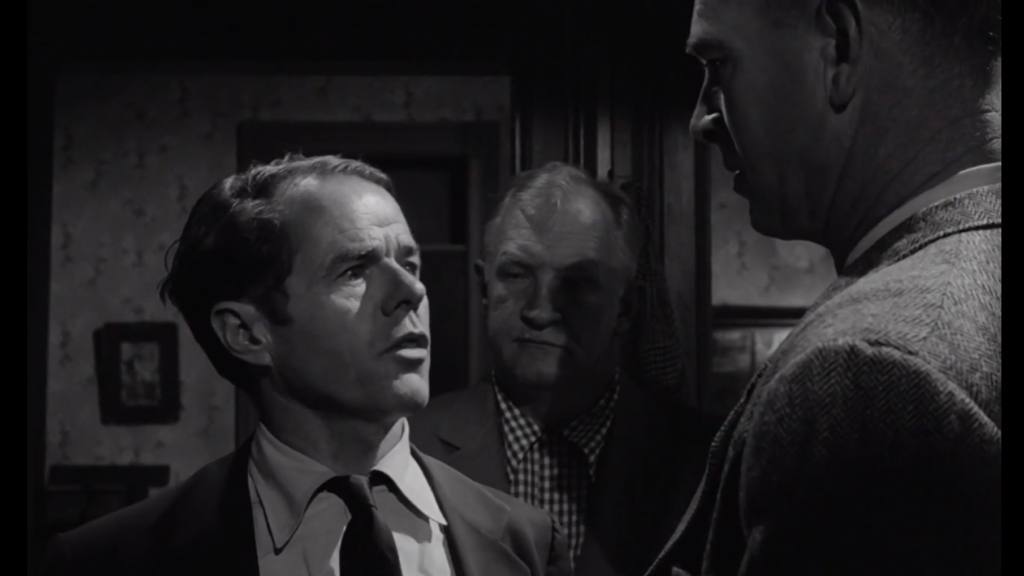
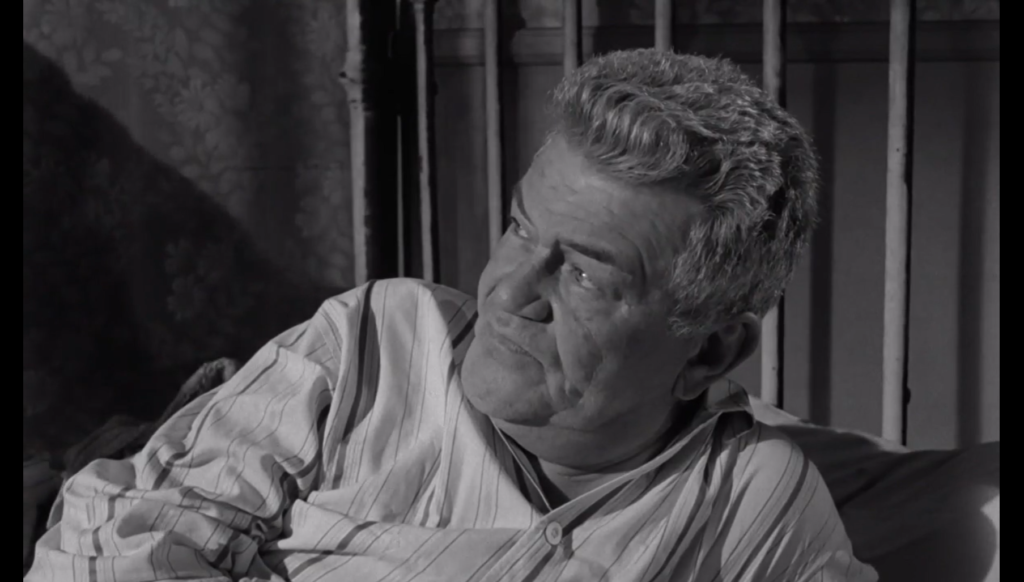
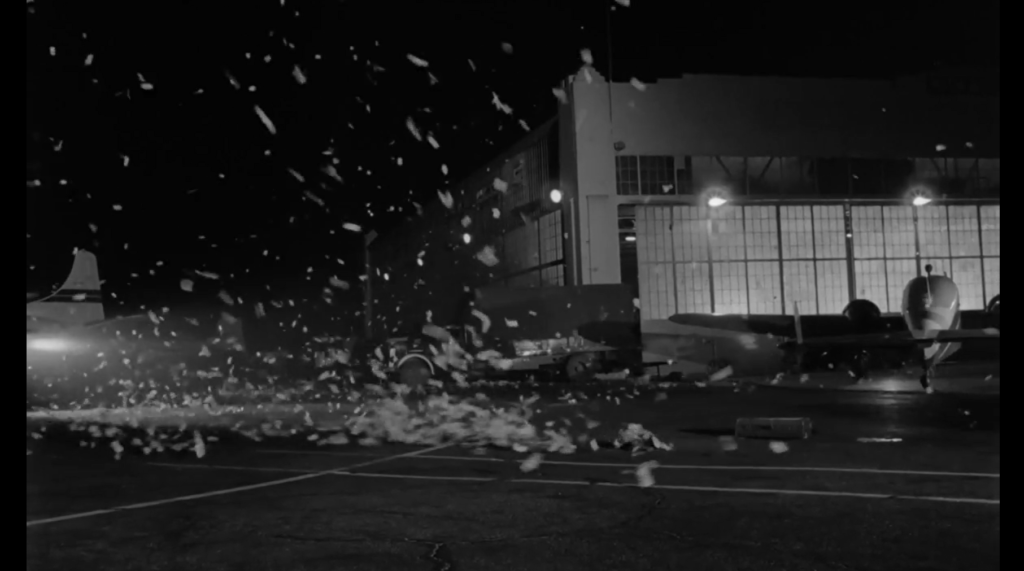
One thought on “Killing, The (1956)”
A no-brainer must. A slim, slick caper film – and the less ffs know, the better. They should just watch it.
I’ve seen this film a number of times and no doubt will see it again. It’s just a winner. I did have some qualms about the narration but I don’t ultimately find it all that excessive and it does help to keep the audience pulled in. (It’s used sparingly as the film progresses.)
One reason it’s best not to say too much is that the film comes up with unique surprises that should not even be hinted at.
I do find it…intriguing, tho, that Kubrick gets screenplay credit while Thompson (a personal fave as a novelist) gets “dialogue” credit. What does that actually mean?, one wonders.
Windsor plays it to the hilt in, perhaps, the film’s best-written role. (Hayden is particularly strong, esp. in the way he’s been directed with a ‘take-no-prisoners’ approach.) But there’s something very clinical (in a good way) overall about the writing. Thompson clearly did his homework about a number of things and it all pays off.
All told, this is not a film where acting is what you leave with (tho everyone is quite good). This is a film with plot front and center. It’s a film that creeps up on you as it goes along…and is very creepy itself. Just watch it.